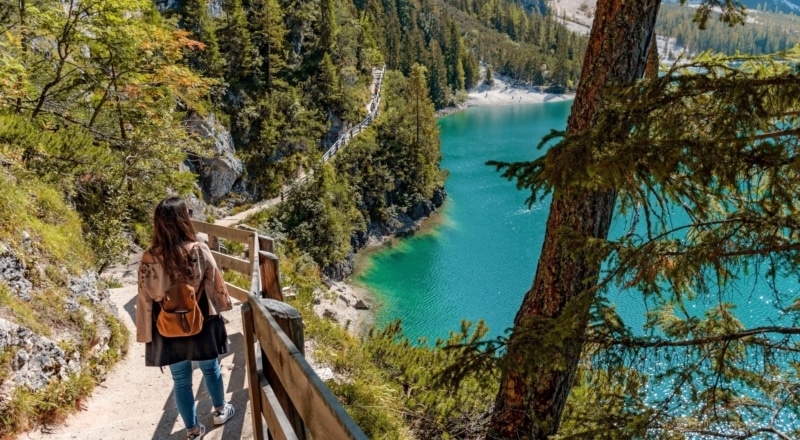My top tips for interrailing around Europe
These six top tips can help you plan a stress-free and memorable holiday

Interrailing had been on my bucket list ever since I first heard of it in 5th year in secondary school. It wasn’t until I had left college that my travel goal became a reality and my boyfriend and I set off on our European adventure. We spent over six months planning our trip and decided on visiting a total of nine cities over a three week period, starting in Krakow and finishing in Paris. Reflecting on our amazing experience, I wouldn’t change a thing, although I did learn plenty of tips and tricks along the way!
Here are my top six interrailing tips that I picked up while away.
1. Find the right travel partners
I travelled with my long term boyfriend and this worked well for us. Occasionally, we had time apart from each other while meeting with our friends in different cities along the way. Travelling with a life-long friend or a small trusted group of friends can ensure a successful and fulfilling interrail trip. Before heading off, make sure to discuss with your travel partners the places you would like to see and things you would ideally like to do while on the trip. This way, if the group are not as interested in the same experiences as you then you can plan time for these outings by yourself. This short break away from the group can sometimes be just what the doctor ordered!
2. Planning your route
Once you have decided on the route you would like to take, visit the interrail website. Sign up for their newsletters and purchase the ticket that suits your plans best during a 10% off flash sale. This 10% off will stretch very far once you make it to Europe!
3. Creating a planner
This one is optional. Some choose to spend their time abroad as they please, moving from one city to another freely, with no plan. Others, like myself, may wish to create a planner documenting what they have booked to do each day and at what time. This approach requires a lot of time and effort but ultimately guarantees smooth sailing and happy campers once travelling.
4. Budgeting
Before you go you may wish to purchase travel insurance that covers cancellations, health emergencies, any loss or breakage of technology, and theft. Although insurance can be quite expensive, the good news is most European cities are relatively inexpensive. However, depending on your chosen cities, the price of simple items can range quite dramatically. In this event, I found it practical to have packed things such as snacks, a refillable water bottle, washing powder, shampoo, bug repellent etc. to save on unnecessary spending when abroad. This also gives you an opportunity to leave behind those things you may not need on your return like that half empty bottle of sun cream, opening space in your luggage for cultural trinkets you may have picked up along the way.
5. Safety
While you may be quite aware of how to protect your personal belongings while abroad, this heightened sense of awareness should also stretch to your own personal safety. Of course, going out alone late at night may seem like an obvious risk but posting your immediate location online, even if through a happy holiday snap, can also pose a possible danger while away. If you are an avid social media poster perhaps think about posting an album of city snaps while on route to your next destination. This said, I shared my itinerary with family and friends at home including details of the trains I was taking and the place I had booked to stay in just in case of times of trouble.
6. Apps and websites
Along with the interrail website they also have an app called Eurail / Interrail Rail Planner available for download. This can help with booking trains in advance. Most European cities have their own public transport apps whether it be for train, tram, taxi or other. Other really useful apps that I used include; Skyscanner to book your flights and your chosen airline’s app to display your airplane ticket. TripAdvisor is good for booking activities while budgeting apps can help to keep track of your expenditures. Revolut can be really helpful and XE is helpful for a quick currency conversion when comparing prices with your national currency. Booking.com, Airbnb or HostelWorld are all safe to use when booking accommodation and any translation app will always come in handy. Lastly, my favourite app of all is FreePrints for when you return and wish to make a photobook of your newly made memories!
I can’t wait to use these six quick tips when jetting off on our next interrailing trip. I hope you find them as useful when organising your big adventure too, wherever it may take you!





